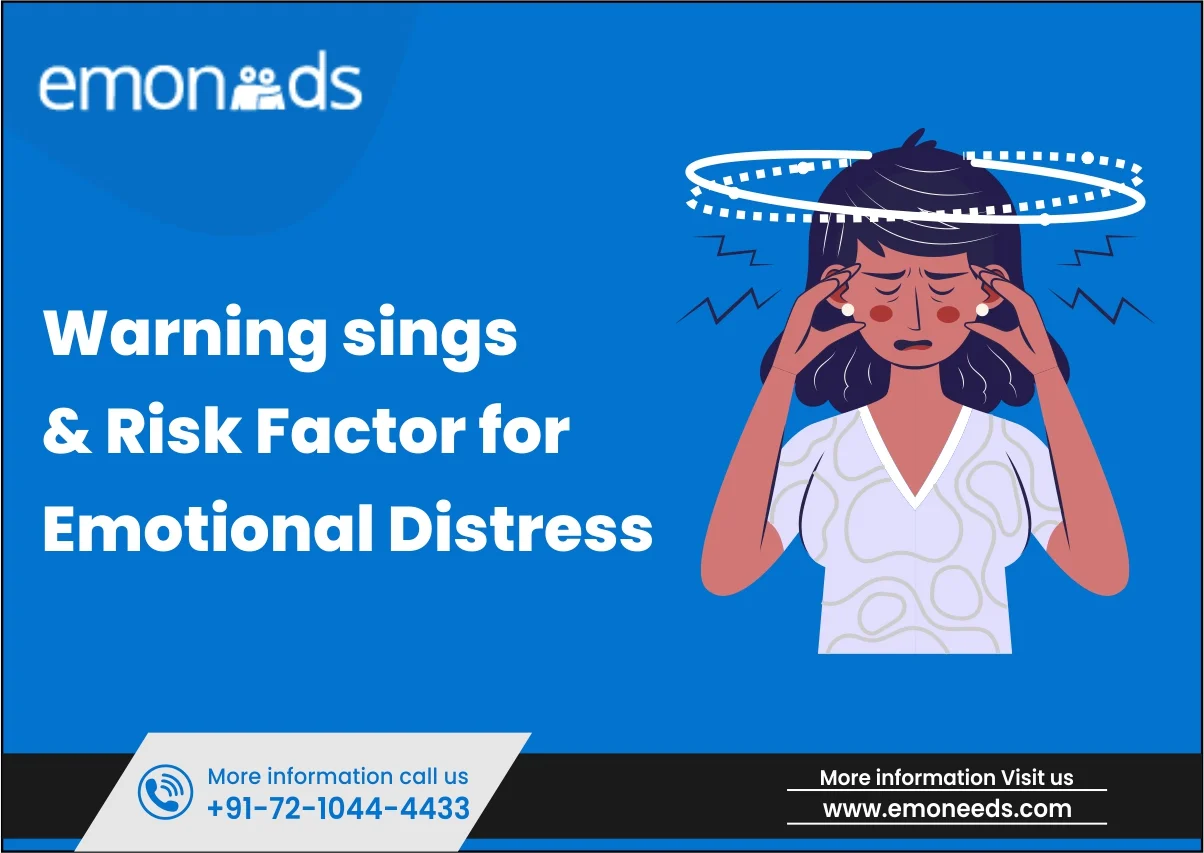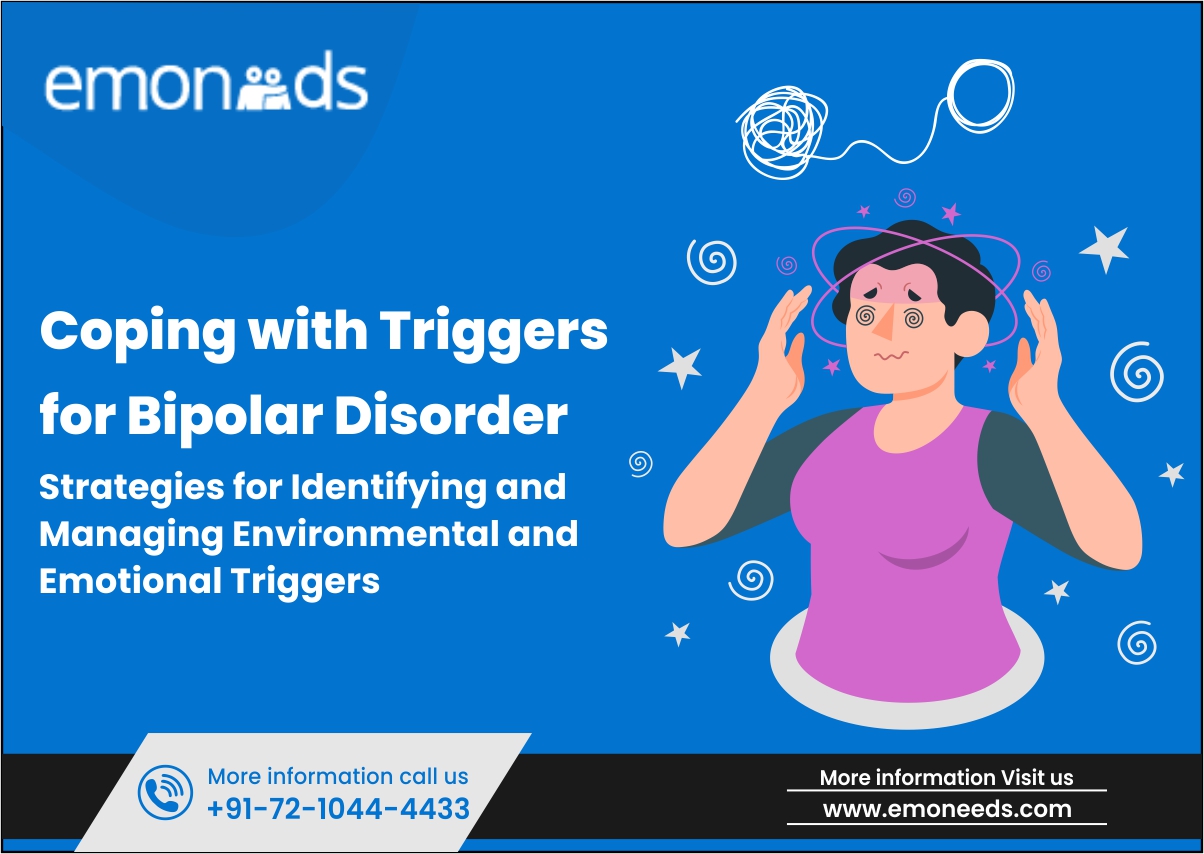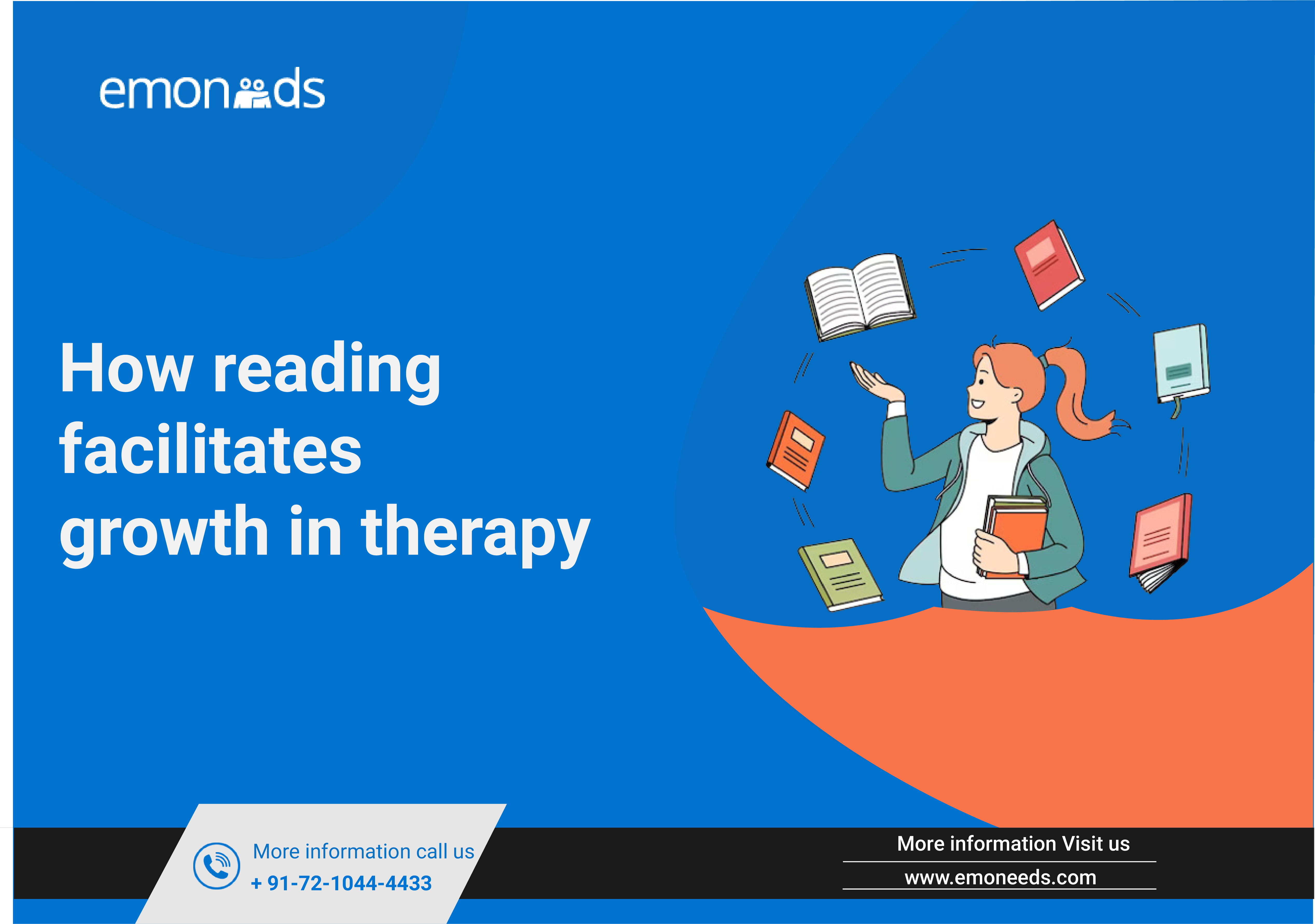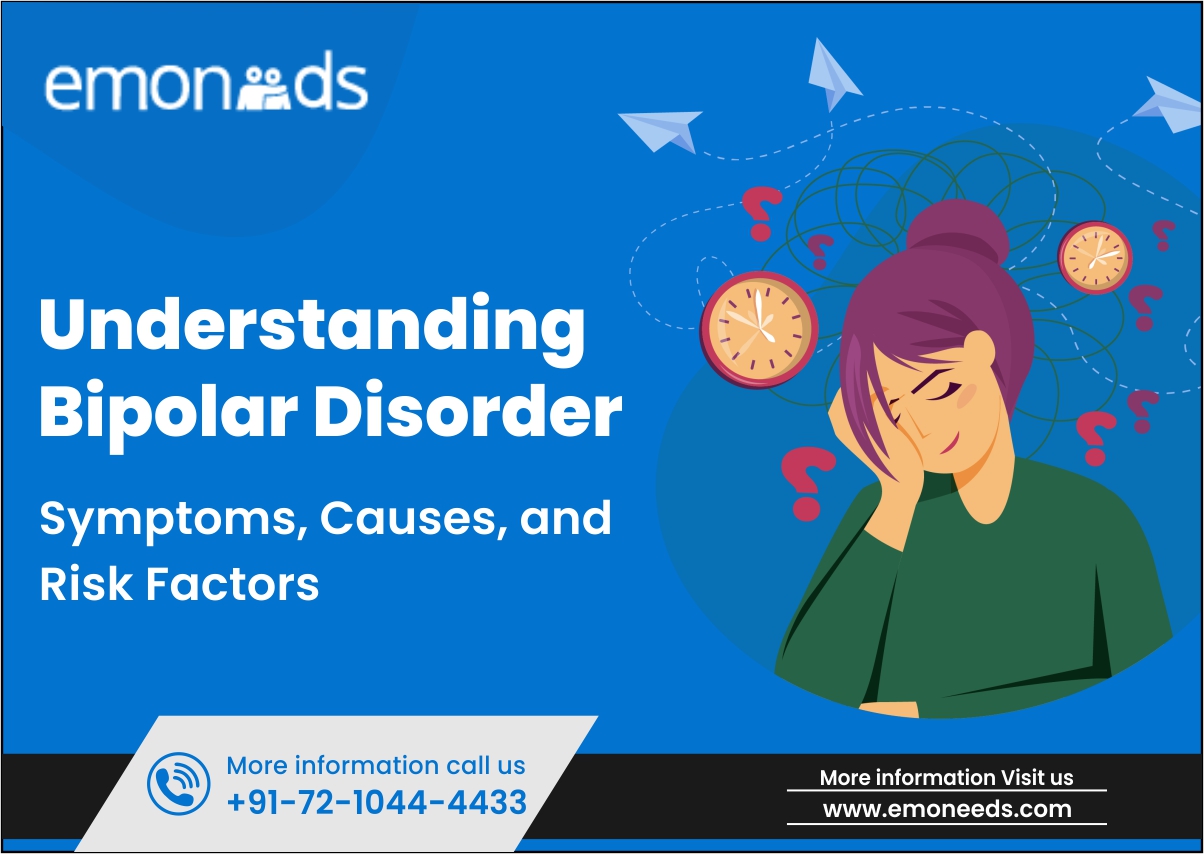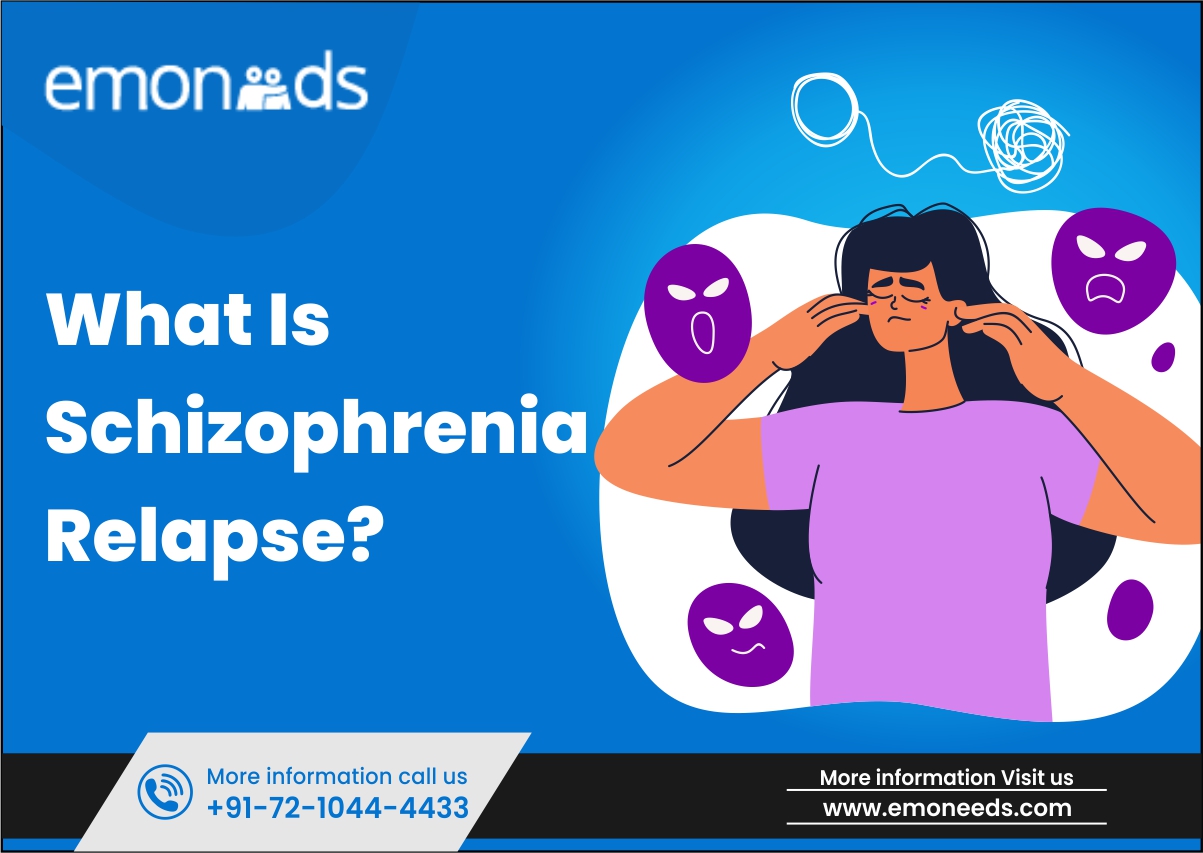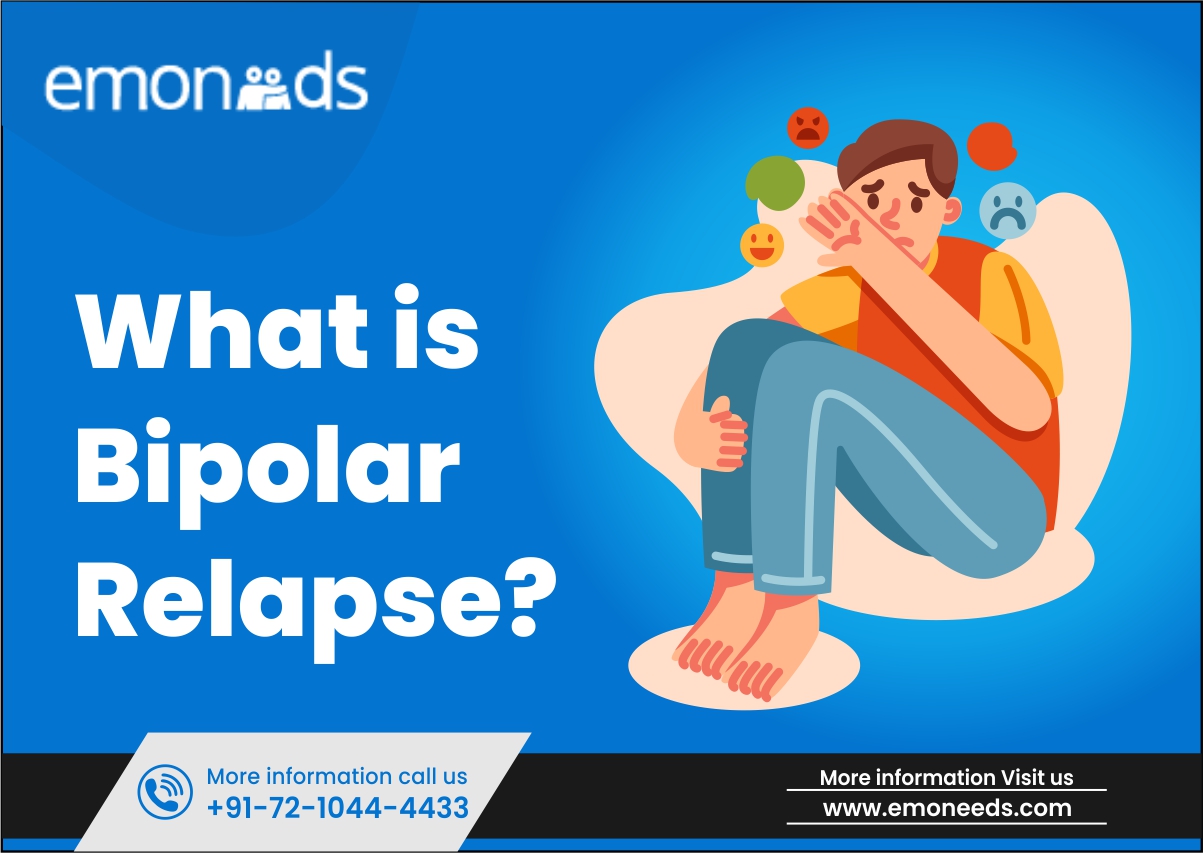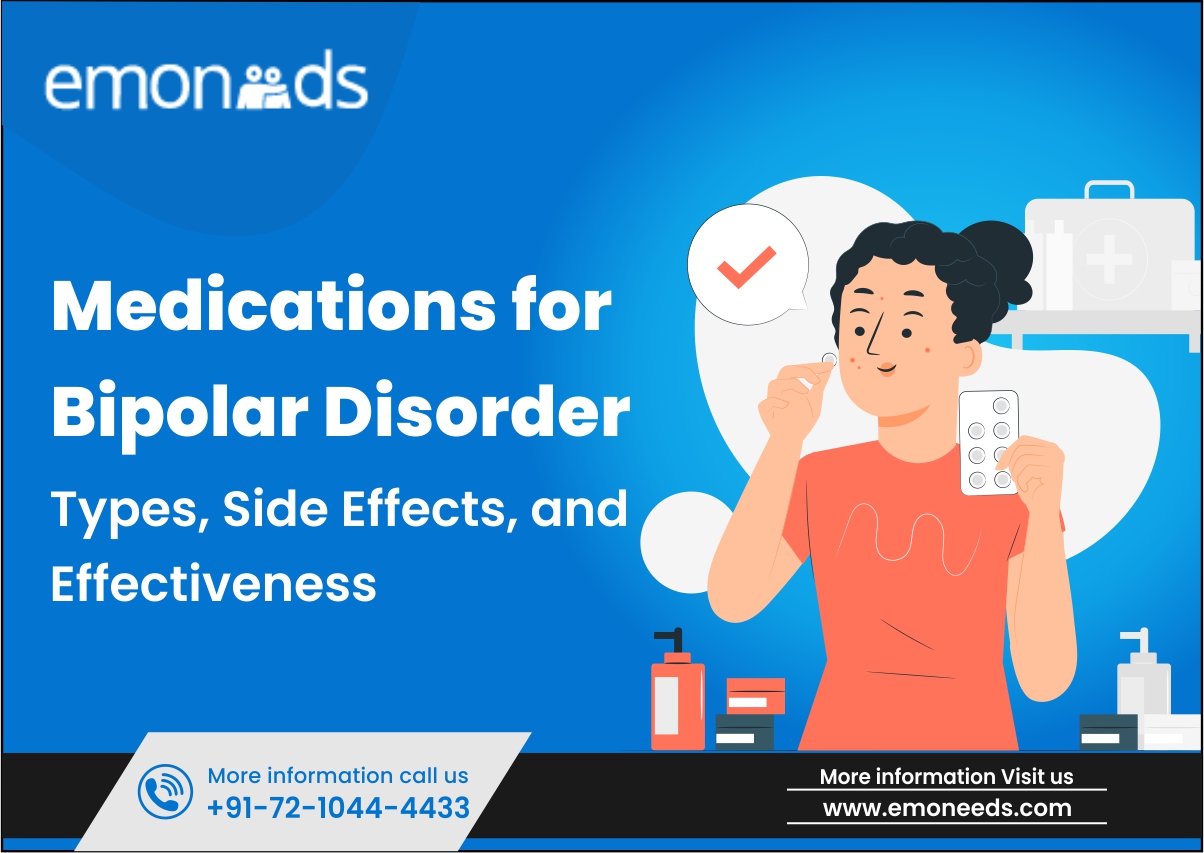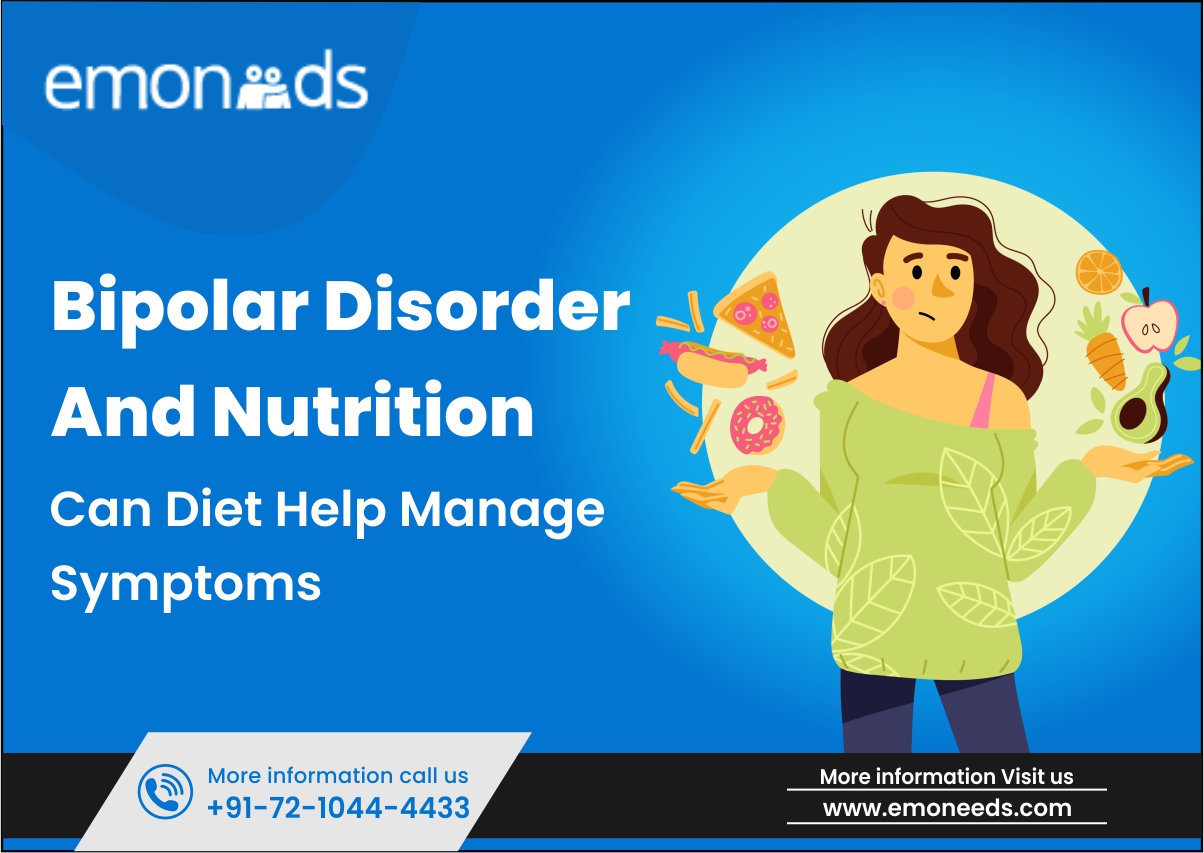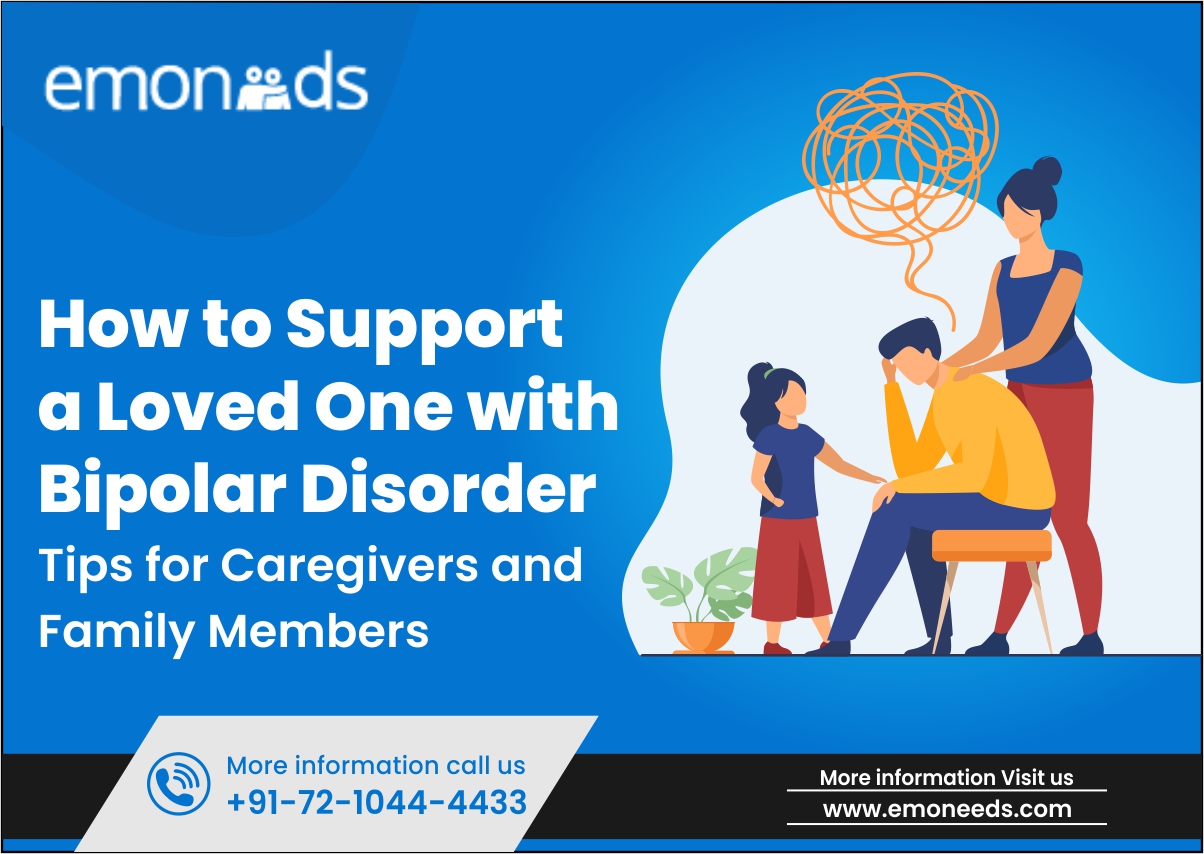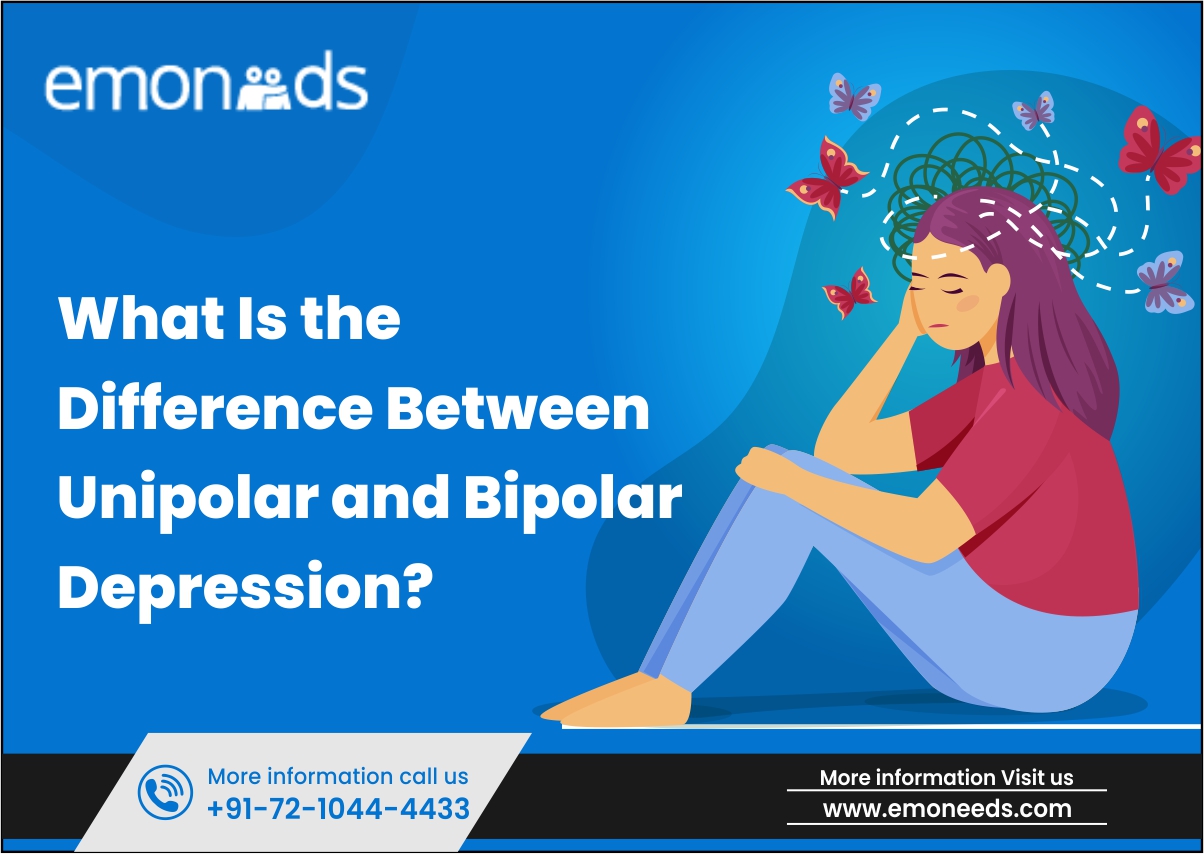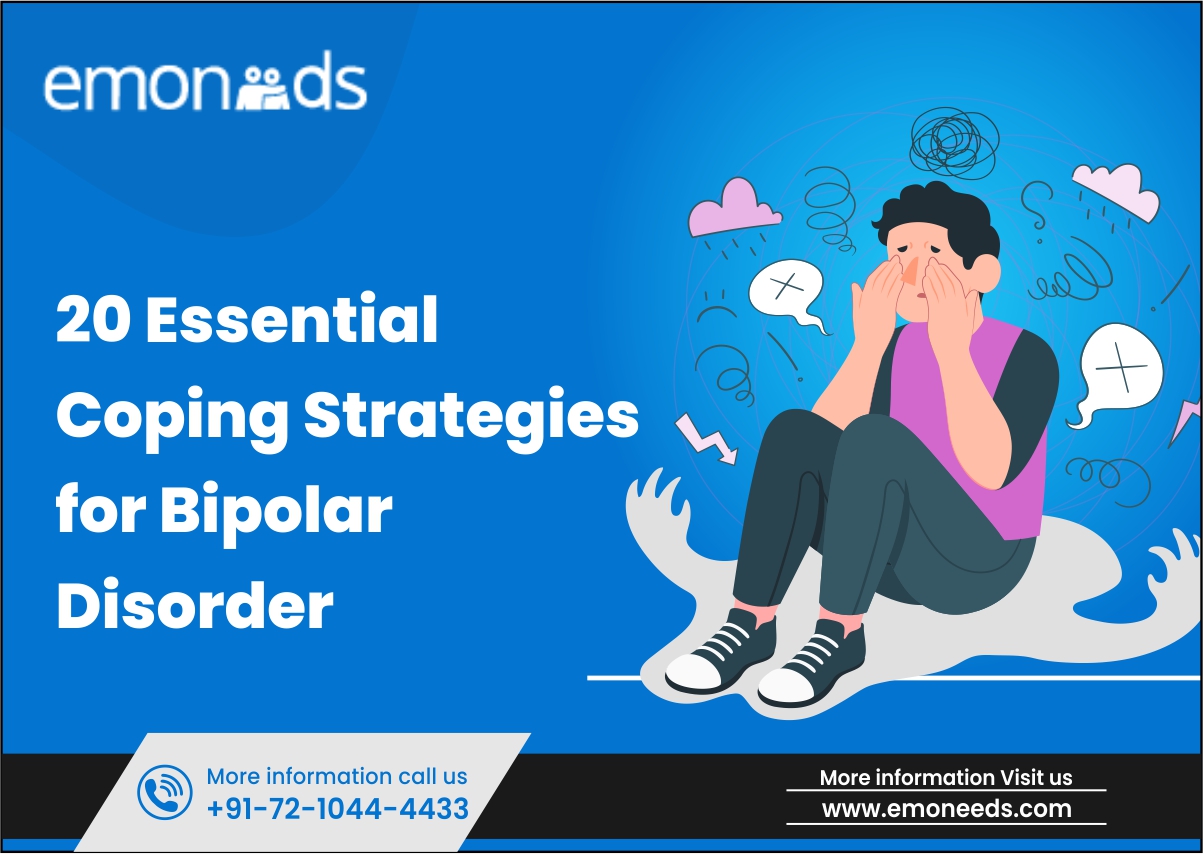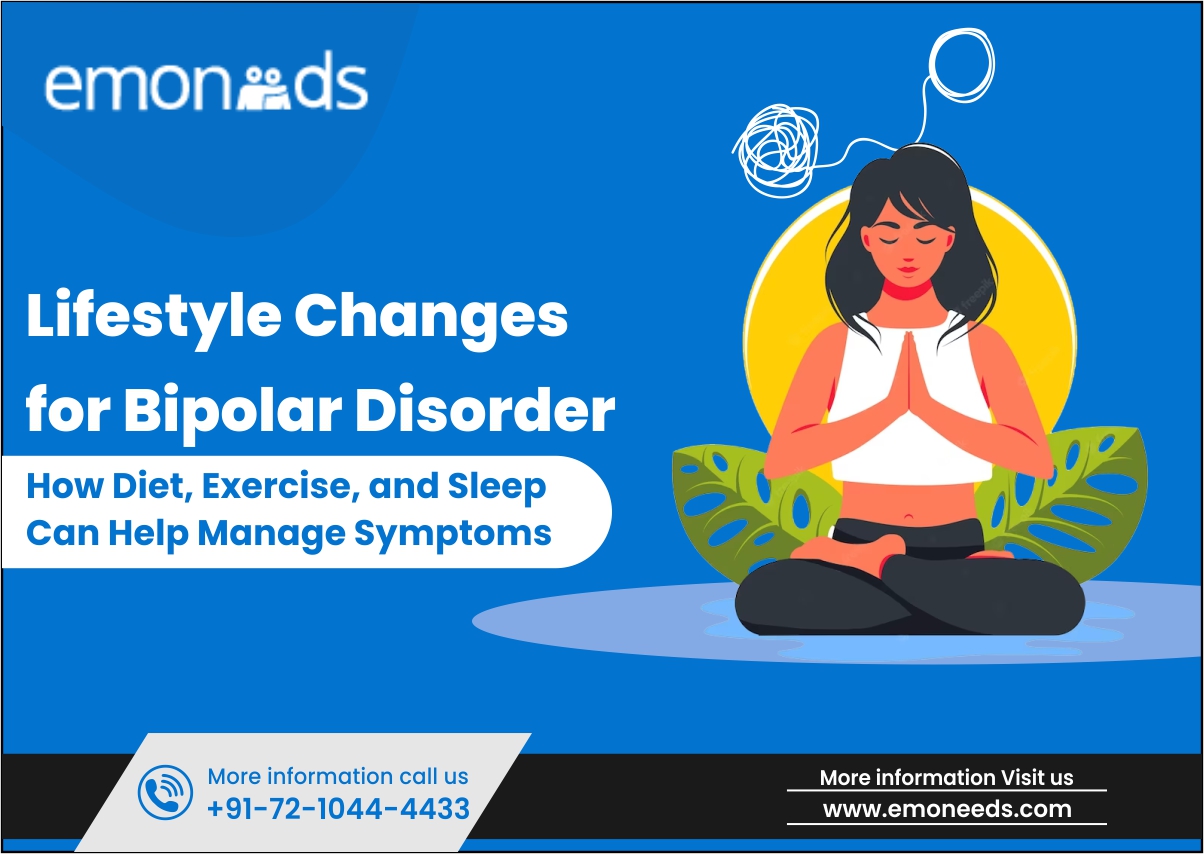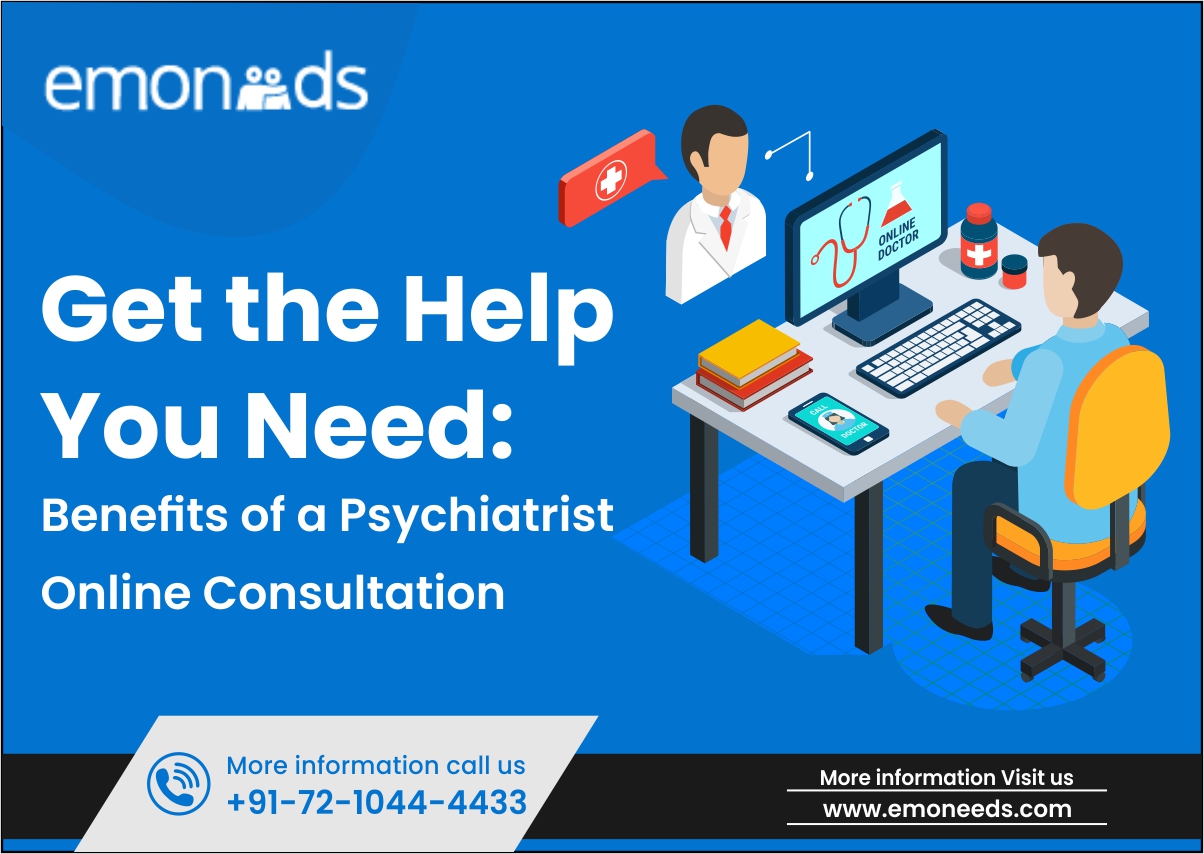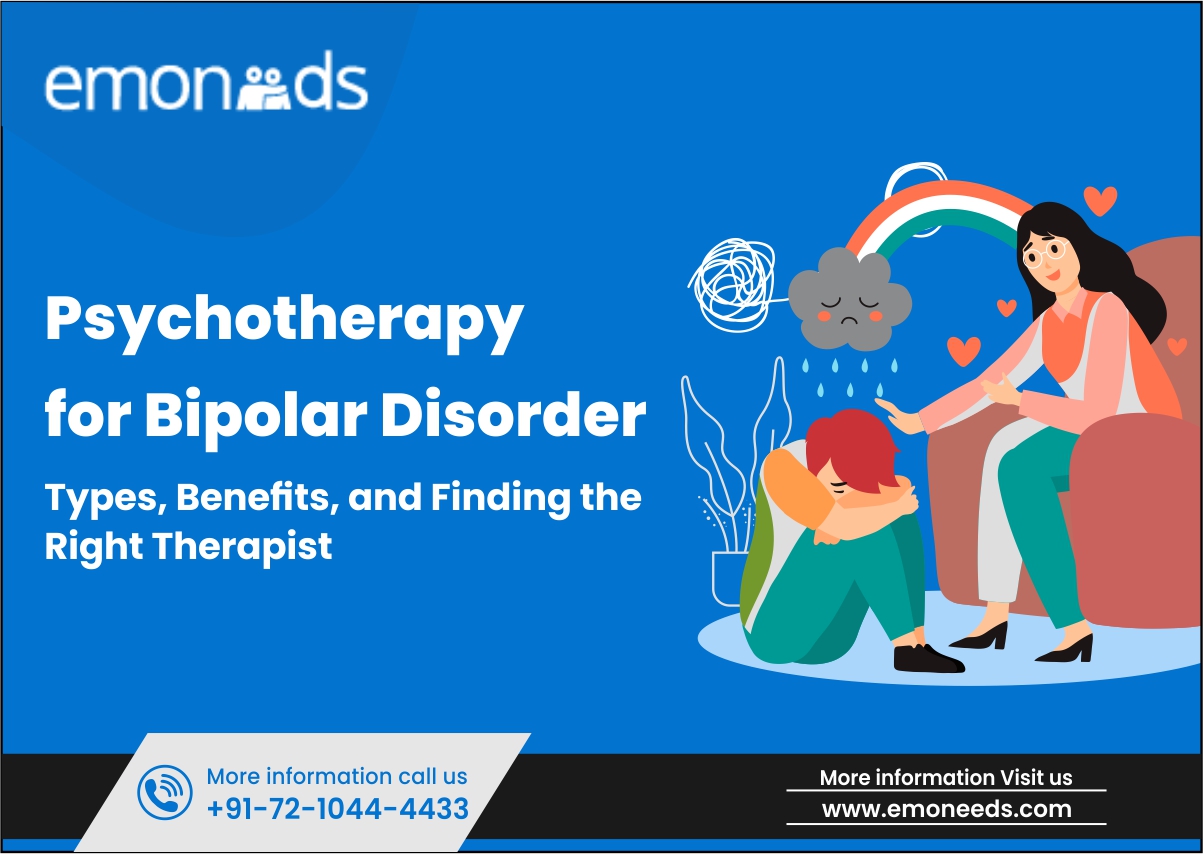
- July 21, 2023
- Saloni Kabra
- 0
Navigating the path of bipolar disorder requires strength, resilience, and access to comprehensive support. While medication is a cornerstone of treatment, the role of psychotherapy should not be underestimated. It serves as a powerful ally, empowering individuals to better understand their condition, develop coping strategies, and cultivate a sense of stability and well-being.
In this blog, we will not only explore the diverse types of psychotherapy available for individuals with bipolar disorder but also shed light on an innovative platform that aims to revolutionize mental health care: Emoneeds. Emoneeds stands as a beacon of hope, offering a convenient and accessible solution for individuals seeking high-quality mental health support from the comfort of their own homes.
Throughout this journey, we will delve into the benefits of psychotherapy for bipolar disorder and discover how Emoneeds leverages the power of telemedicine and a multidisciplinary team to provide personalized and comprehensive care. From daily support for chronic conditions to the prevention of relapse and hospitalization, Emoneeds has emerged as a groundbreaking platform dedicated to supporting individuals in their quest for understanding, managing, and overcoming the difficulties associated with bipolar disorder.
Join us as we explore the transformative potential of psychotherapy and uncover how Emoneeds is redefining the landscape of mental health care, making it more accessible and empowering for those living with bipolar disorder. Together, we will uncover the tools, support, and guidance needed to embark on a path toward healing, growth, and the pursuit of a fulfilling life.
Table of Contents
ToggleWhat is Bipolar Disorder?
Before delving into psychotherapy, let’s gain a deeper understanding of bipolar disorder. It is a complex mental health condition that manifests in two main subtypes: bipolar I and bipolar II. Bipolar I involves severe manic episodes, often accompanied by episodes of major depression, while bipolar II is characterized by hypomanic episodes and depressive episodes. People with bipolar disorder often face challenges such as mood instability, impulsivity, sleep disturbances, and difficulty maintaining relationships.
The Role of Psychotherapy in Bipolar Disorder Treatment
Medication is often the first line of treatment for bipolar disorder, but psychotherapy is equally important. While medication helps manage symptoms, psychotherapy addresses the underlying psychological and emotional aspects of the condition. It aims to improve mood stability, enhance coping skills, and prevent relapse. By working with a skilled therapist, individuals with bipolar disorder can gain insight, develop strategies, and build resilience to navigate the challenges they face.
Different Types of Psychotherapy for Bipolar Disorder
When it comes to managing bipolar disorder, psychotherapy offers a range of effective approaches to address the unique challenges individuals face. Here are some of the main types of psychotherapy commonly used in the treatment of bipolar disorder:
Cognitive-Behavioral Therapy (CBT)
CBT is a widely recognized and evidence-based therapy that focuses on identifying and changing negative thought patterns and behaviors that contribute to mood swings. By working with a therapist, individuals learn to challenge distorted thinking, develop healthier coping mechanisms, manage stress, and recognize early warning signs of mood shifts. CBT equips individuals with practical tools to regain control over their emotions and behaviors.
Dialectical Behavior Therapy (DBT)
DBT combines elements of CBT with mindfulness practices, making it particularly helpful for individuals with bipolar disorder who also struggle with emotional dysregulation. DBT teaches skills for emotional regulation, distress tolerance, interpersonal effectiveness, and mindfulness. By cultivating self-awareness and acceptance, individuals can navigate intense emotions more effectively and develop healthier relationships.
Interpersonal and Social Rhythm Therapy (IPSRT)
IPSRT recognizes the crucial role that stable daily routines and healthy interpersonal relationships play in managing bipolar disorder. This therapy helps individuals establish regular routines, such as consistent sleep patterns and mealtimes, while also addressing the impact of social interactions on mood stability. By stabilizing daily rhythms and improving social support, IPSRT aims to reduce the risk of relapse and enhance overall well-being.
Family-focused Therapy (FFT)
Bipolar disorder not only affects the individual but also has an impact on their family members. FFT involves the participation of family members in therapy sessions, providing a supportive and educational environment. This therapy focuses on improving communication, resolving conflicts, and educating families about bipolar disorder. By fostering understanding and collaboration, FFT helps create a support system that enhances treatment outcomes and promotes family harmony.
Psychoeducation
Knowledge is power, and psychoeducation plays a crucial role in empowering individuals and their families to understand bipolar disorder. Psychoeducation provides information about the condition, its causes, treatment options, and strategies for managing symptoms. By learning about the nature of bipolar disorder, individuals can make informed decisions, actively participate in their treatment, and take steps toward self-advocacy.
Each of these psychotherapeutic approaches has its own strengths and may be utilized individually or in combination, depending on the unique needs of each individual. It’s essential to work closely with a qualified therapist who specializes in bipolar disorder to determine the most suitable approach for your specific circumstances.
By engaging in psychotherapy tailored to bipolar disorder, individuals gain valuable insights, develop effective coping strategies, and build resilience in managing their condition. The supportive guidance provided by these therapeutic approaches empowers individuals to take an active role in their treatment journey, leading to enhanced well-being and a greater sense of control over their lives.
Remember, finding the right therapist who understands your needs and preferences is key to the success of your psychotherapy experience. The next section will explore the essential steps to help you find the right therapist for your bipolar disorder treatment.
Choosing the Right Therapist
Finding the right therapist is a crucial step in your journey toward effective bipolar disorder treatment. When seeking a therapist, there are several important considerations to keep in mind. Here are some factors to consider when selecting a therapist who will best meet your needs:
Credentials and qualifications: It’s essential to seek out licensed professionals who have the appropriate credentials and qualifications to provide mental health care. Look for therapists who are licensed psychiatrists, psychologists, or licensed clinical social workers. These professionals have undergone rigorous training and are equipped with the knowledge and skills necessary to treat bipolar disorder.
Specialization in bipolar disorder: Bipolar disorder is a complex condition that requires specialized knowledge and expertise. Look for therapists who have experience and specialization in treating bipolar disorder. They will have a deeper understanding of the condition, its symptoms, and the most effective treatment approaches. A therapist with specific expertise in bipolar disorder can provide tailored treatment strategies that address your unique needs.
Compatibility and rapport: Building a strong therapeutic relationship is crucial for successful treatment outcomes. It’s important to find a therapist with whom you feel comfortable, understood, and supported. Trust your instincts and pay attention to how you feel during your initial interactions with potential therapists. A good therapist will create a safe and non-judgmental space where you can openly express your thoughts and feelings.
Recommendations and referrals: Seeking recommendations and referrals from trusted sources can be a valuable way to find a therapist. Consult with your healthcare provider, primary care physician, or other mental health professionals you have worked with in the past. They can provide insights and recommendations based on their knowledge of your specific needs and preferences. Additionally, reach out to trusted friends, family members, or support groups who may have had positive experiences with mental health professionals specializing in bipolar disorder.
With Emoneeds, you can feel confident that you are choosing a provider that values your well-being and is dedicated to helping you effectively manage your bipolar disorder. Our commitment to delivering exceptional mental health care will empower you to navigate the challenges of bipolar disorder and live a fulfilling life.
The Therapeutic Process and What to Expect
Psychotherapy sessions for bipolar disorder typically involve collaborative discussions and tailored interventions. Your therapist will work with you to identify triggers, develop coping strategies, and promote self-awareness. They may explore past experiences, help you understand your thoughts and emotions, and guide you in setting achievable goals. Remember, therapy is a journey that requires active participation, honesty, and open communication.
Additional Self-Help Strategies and Support
In addition to psychotherapy, there are self-help strategies that can complement your treatment:
Maintain a regular sleep schedule: Prioritize healthy sleep habits by following a consistent routine. Sufficient and quality sleep can positively impact mood stability.
Engage in stress-reducing activities: Incorporate stress-management techniques into your daily routine. Activities such as exercise, meditation, deep breathing, and hobbies can help reduce stress levels.
Establish a support network: Seek support from trusted friends, family, or support groups. Connecting with others who understand your experiences can provide comfort and encouragement.
Conclusion
Psychotherapy is an invaluable component of bipolar disorder treatment, working hand in hand with medication to promote stability and well-being. By understanding the different types of psychotherapy available, the benefits they offer, and how to find the right therapist, you can embark on a path toward managing your bipolar disorder effectively.
Emoneeds understands the importance of convenience and accessibility in receiving mental health care. Through our telemedicine paradigm, you can engage in online consultations with your therapist, psychiatrist, or care counselor at a time that suits you best. Our multidisciplinary team is dedicated to your long-term recovery, providing maintenance and sustenance through regular feedback calls and supportive sessions.
Don’t wait any longer to take control of your mental health. Contact Emoneeds today to embark on a transformative journey of understanding, healing, and growth. Remember, you are not alone in this journey. Emoneeds is here to walk alongside you, empowering you to lead a fulfilling and meaningful life while managing your bipolar disorder with confidence and resilience.
DBT emphasizes “mindfulness” practice. Mindfulness develops awareness of emotion, awareness of behavior, and awareness of one’s surroundings, allowing people to observe and accept their current experience without being judgmental. DBT therapists help individuals understand their patterns of emotion regulation, their impact on various aspects of lives, recognize them, and learn healthy skills to express emotions and cope with distressing situations. “Emotion regulation skills” learned through DBT help people deal with their vulnerability to rapid and intense emotional reactions.
People with emotional dysregulation have a lower level of tolerance for distress. A lower distress tolerance level impacts one’s ability to make decisions, which again leads to impulsive or self-destructive behavior. DBT places strong emphasis on enhancing the “distress tolerance skill”. Distress tolerance skills help individuals navigate challenging circumstances and emotions until they are able to respond in an effective way. As a result, such skills help them manage impulsive behaviors and self-destructive tendencies.
Another main focus of DBT is to improve interpersonal skills and help people develop healthy relationships. The “interpersonal effectiveness skills” that one acquires through DBT improve Individuals’ communication, assertiveness, and problem-solving abilities, helping them to manage relationships in a healthier and more adaptable manner. DBT also teaches how to establish healthy boundaries so that one may take care of oneself and have healthier relationships. When disputes occur, DBT skills assist in dealing with them constructively and finding solutions that work.
DBT boosts resilience by providing individuals with practical skills for navigating life’s problems, improving well-being, and creating a more fulfilling and balanced existence.

